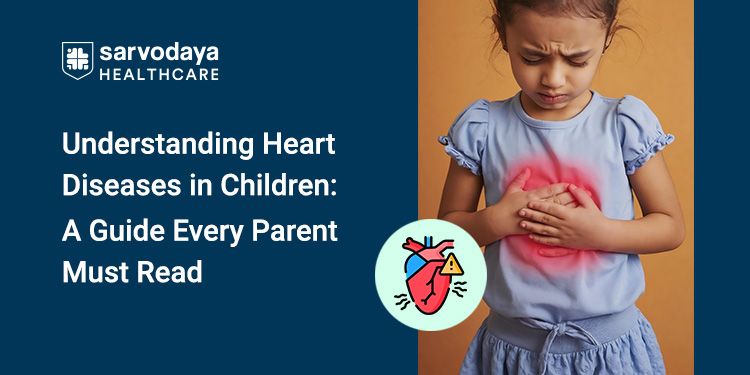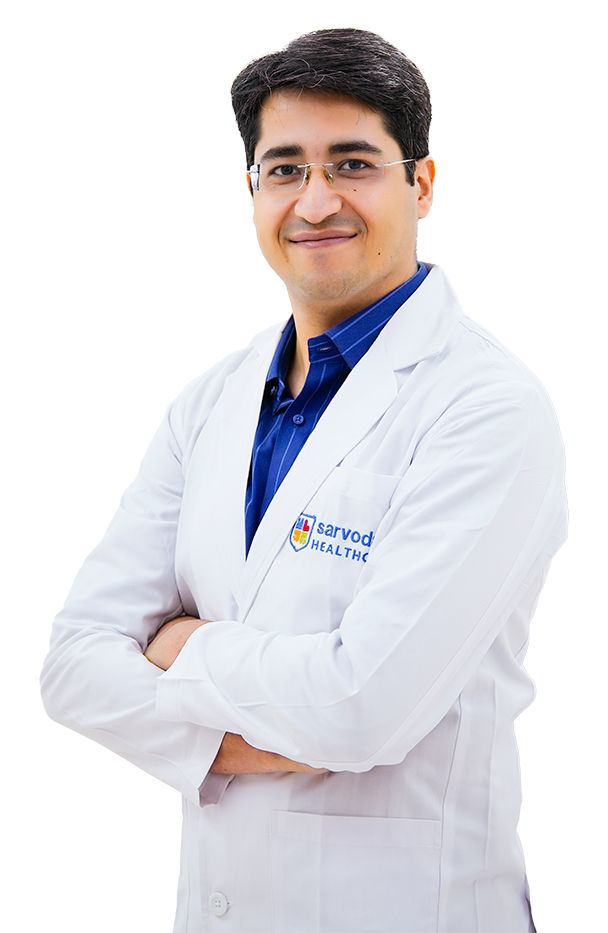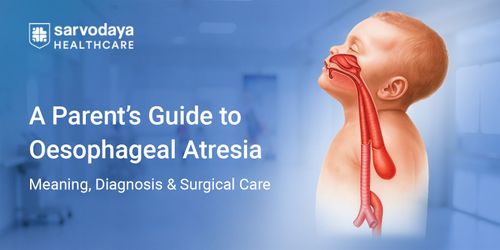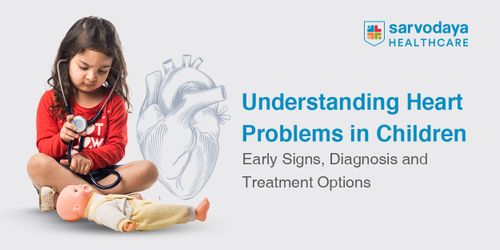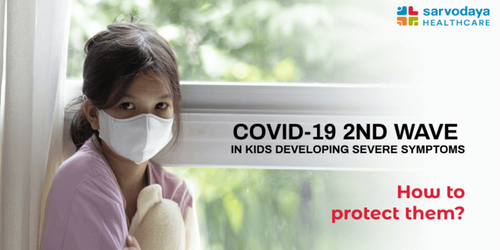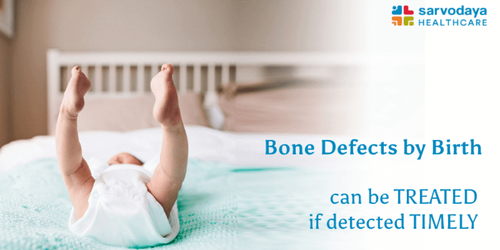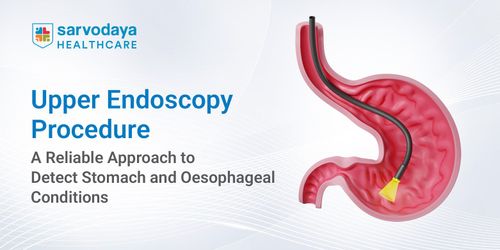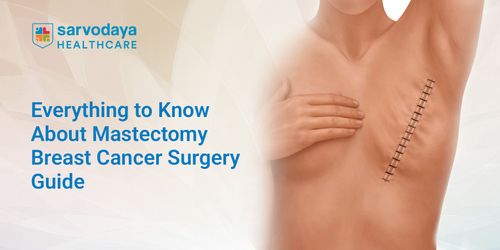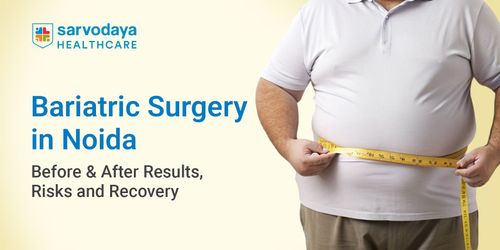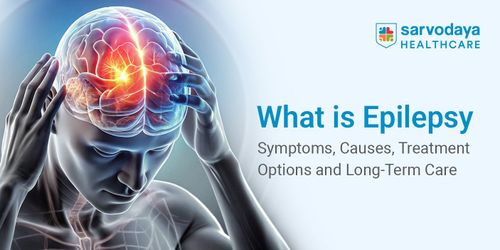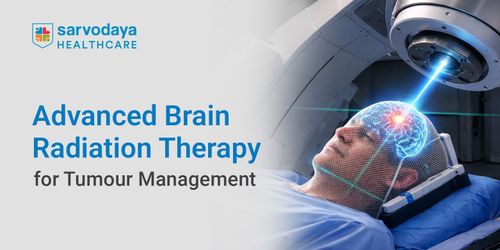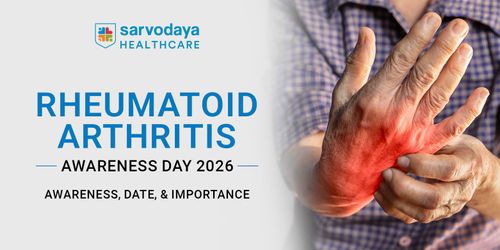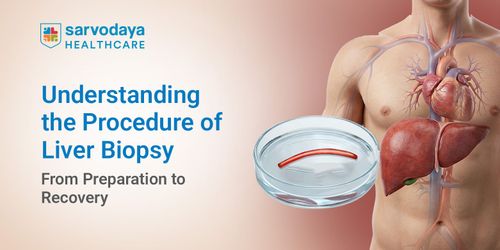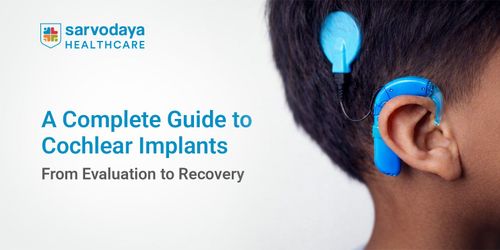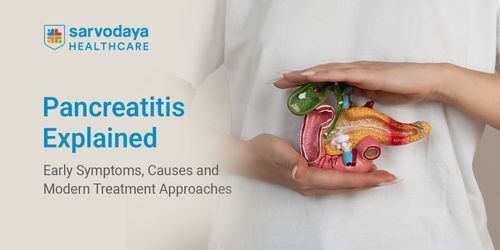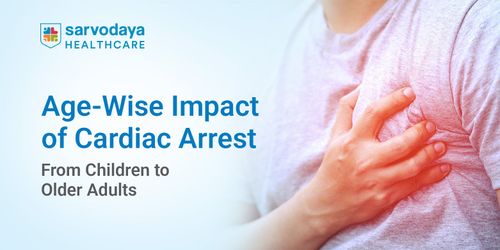While heart conditions are often associated with adults, children too can be born with or develop issues that affect the normal functioning of their heart. Heart diseases in children are usually complex, and early detection is quite difficult. Still, given timely intervention and the right care for the disease, children can go on to lead healthy and fulfilling lives.
In this blog, we will explore what paediatric cardiac diseases are, the common types, symptoms to look out for, how they are diagnosed and treated, and why choosing the right heart care facility makes all the difference.
Understanding Heart Diseases in Children
Heart diseases in children refer to a group of conditions that affect how a child’s heart works. These conditions can be present from birth (known as congenital heart diseases) or can develop later in childhood due to infections, lifestyle factors or underlying health conditions (known as acquired heart diseases). Both types can range in severity, from mild murmurs that require monitoring to critical defects that necessitate surgical correction.
In some cases, these heart conditions are discovered soon after birth, while in others, they may go unnoticed until much later.
Common Heart Diseases in Children
There are multiple heart diseases in children, each affecting the heart's structure or function in different ways. While some may have minimal symptoms and require only monitoring, others may need medical or surgical intervention.
Below are the most commonly diagnosed paediatric cardiac diseases:
- Atrial Septal Defect (ASD): A hole in the wall separating the two upper chambers of the heart, which allows oxygen-rich blood to mix with oxygen-poor blood.
- Ventricular Septal Defect (VSD): A similar hole, but located in the lower chambers of the heart, which can lead to increased blood flow to the lungs.
- Patent Ductus Arteriosus (PDA): A condition where a blood vessel called the ductus arteriosus fails to close after birth, affecting normal blood circulation.
- Tetralogy of Fallot: A complex condition involving four heart defects that result in oxygen-poor blood flowing to the body, often requiring early surgery.
- Pulmonary Stenosis: Narrowing of the valve leading to the lungs, making it harder for the heart to pump blood through.
- Rheumatic Heart Disease: Caused by untreated streptococcal infections like strep throat, this disease can lead to long-term heart valve damage.
Symptoms Every Parent Should Watch Out For
Spotting heart diseases in children can be challenging, as not all conditions show clear symptoms in the early stages. However, certain signs, when noticed persistently, should not be ignored.
Look out for the following:
- Rapid breathing or breathlessness: This may be there even if the child rests or feeds.
- Cyanosis: It appears as a bluish tint to the lips, skin or fingernails.
- Poor feeding or slow weight gain: Especially in infants who tire easily during feeding.
- Fatigue during physical activities: Such as playing or walking short distances
- Swelling in the legs, abdomen, or around the eyes: May indicate fluid buildup.
Diagnosis and Tests for Paediatric Heart Conditions
Many heart diseases in children can now be detected before birth or shortly after, thanks to advanced imaging and screening techniques. A correct diagnosis not only helps in formulating a treatment plan but also prevents the progression of the disease.
The most common diagnostic tools include:
- Echocardiogram (Echo): A painless ultrasound that provides detailed images of the heart’s chambers, valves and blood flow.
- Electrocardiogram (ECG): Measures the electrical activity of the heart and can detect irregular rhythms.
- Chest X-ray: Helps identify any enlargement of the heart or fluid in the lungs.
- Cardiac MRI: Offers a comprehensive view of the heart’s anatomy and is especially useful for complex congenital conditions.
- Cardiac catheterisation: Involves inserting a thin tube into the heart through a vein or artery, often used for both diagnosis and treatment.
Parents are encouraged to consult the most skilled paediatric cardiology surgeon in Faridabad to ensure these tests are conducted with precision.
Treatment Options for Heart Diseases in Children
The treatment of paediatric cardiac diseases varies significantly depending on the condition, its severity and the age of the child. While some children outgrow mild heart issues with age, others may require continuous monitoring or medical intervention.
Treatment options may include:
- Medications: Drugs such as beta-blockers, ACE inhibitors or diuretics may be prescribed to help the heart pump more effectively, control blood pressure or reduce fluid retention.
- Catheter-based procedures: Minimally invasive techniques that correct defects using small tubes without the need for open-heart surgery. These are suitable for specific types of defects like ASD or PDA.
- Surgical interventions: Open-heart surgeries may be required for more complex cases, such as Tetralogy of Fallot or severe valve defects. These are usually performed by the best paediatric cardiology surgeons in Faridabad in state-of-the-art surgical units.
- Long-term care and follow-up: Even after successful treatment, regular check-ups are essential to monitor heart function and manage any long-term risks.
Importance of Choosing the Right Care Facility
When dealing with heart diseases in children, selecting the right medical facility is not just a preference; it is a necessity. Paediatric heart care requires a dedicated, child-centric approach that includes experienced cardiologists, advanced technology, and emotionally supportive environments for both children and their families.
The expertise of the treating team plays a vital role in determining the outcome of treatment. Choosing the top paediatric cardiologist in Delhi NCR ensures that your child receives expert care tailored to their age and specific heart condition.
Conclusion
As medical science advances, the outlook for children diagnosed with heart conditions continues to improve. With awareness and timely care, most children with heart diseases can go on to live active, healthy lives.
Sarvodaya Hospital, Faridabad, recognised as a premium heart hospital in Faridabad, offers world-class paediatric cardiology services under one roof. From diagnosis to advanced surgical care, their paediatric cardiology unit is equipped with cutting-edge technology and a team of the top cardiologists in India. Parents can also opt for preventive consultations, which allow for early detection and intervention, often preventing complications before they arise.
Prioritising your child’s heart health today sets the foundation for a healthier tomorrow. Book a preventive consultation today for your child’s healthy heart tomorrow.


